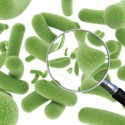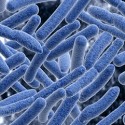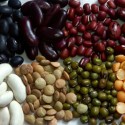I was kindly invited to dinner one evening and on the table sat a large pot of beans. This caused me to begin to wonder what actually comprises a bean? Beans are considered a legume and there are many kinds: kidney beans, black beans, garbanzo beans, just to name a few. Beans are used in many ways including soups, tacos,and chip dip. Beans… Continue Reading
Category Archives: Diet

Are Diets High in Protein Fat’s Enemy?
Can high protein help conserve muscle mass and decrease fat mass during weight loss? And if so, what is the right amount that should be consumed? A recent paper published in 2013 discusses a study that looks into these very questions. The RDA is set at .8g per kg of body weight per day, the… Continue Reading

The Best and the Worst of Restrictive Diets
Restrictive diets are very popular among thousands of people in the U.S. Today, debates continue to decipher what eating habits are the healthiest. Studies have been done on individual diets alone but a study has never compared how the main restrictive diets stand up against each other. In a new study researchers from Belgium1 looked… Continue Reading

Love your veggies… Love your liver!
We are always told to eat our vegetables. There are endless health benefits along with disease prevention when we eat a vegetable rich diet. Even though it has been engraved in our minds, does that mean our vegetable eating habits are up to par? In an observational study recently done by the Academy of Nutrition… Continue Reading

Is Mini-fasting the Diet for You?
Mini-fasting has become a popular new diet plan because of the simplistic nature. It involves intermittently reducing energy by fasting for 12-18 hours two times a week, and eating a normal diet the remaining five days. A randomized study was conducted looking at the effects of intermittent fasting compared with a diet that restricts energy… Continue Reading

Probiotics: Effective? Or a Hoax?
http://dx.doi.org/10.1016/j.nut.2013.09.007 The effects of probiotics have been heavily researched in the last five years. The role that gut microbiotia play in healthy digestion and immune function have been a topic of interest to many researchers. One of the areas of interest is the effect of probiotics in reducing joint inflammation and increasing the immune response… Continue Reading

Microbiota and Your Mood
From the moment we are born, our body begins to house a unique and diverse population of microbes, commonly referred to as intestinal microbiota.1 While there are many factors that contribute to the colonization of these microbiota, one study suggests that the health of our microbes may be linked to our central nervous system2 and… Continue Reading

Diet Can Improve Your Insulin Sensitivity
The development of type 2 diabetes, metabolic syndrome, heart disease, fatty liver, and other unpleasant disorders can come from insulin resistance. Insulin resistance puts a strain on the hormone insulin’s ability to allow glucose, the most basic form of energy, from entering the body’s cells. The lack of energy to our body can be physically… Continue Reading

Reward Rewiring
This double blind randomized control trial assessed the behavioral reward system in the brain, as it responded to a novel weight loss intervention. The question posed was: can the brain reprogram to receive greater reward from low calories foods and less reward from high calorie foods through a behavioral weight loss intervention. Researchers found that… Continue Reading

Could Yogurt Lower Your Risk of Type 2 Diabetes?
In the United States nearly 26 million people have type 2 diabetes (T2D). That means that 1 in 10 adults (20 and older) and 1 in 4 seniors (65 and older) suffer from this disease.[1] The most common form of diabetes is known as Type 2 which is characterized by imbalanced blood sugar levels due… Continue Reading







